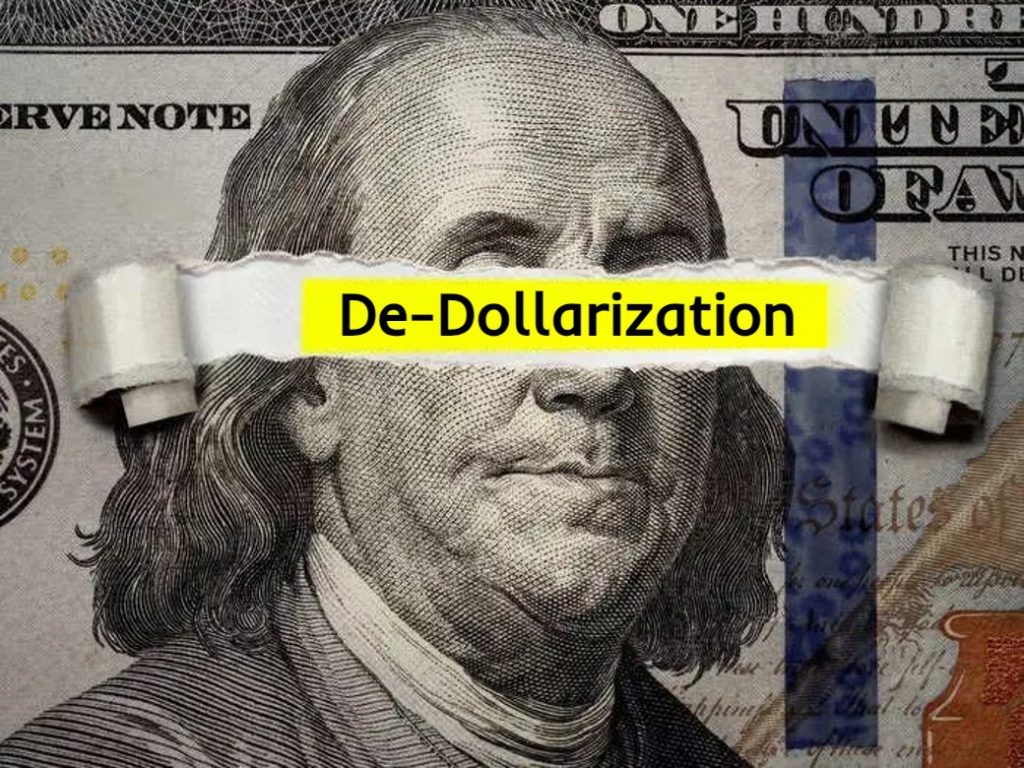The latest de-dollarization efforts are gaining momentum right now as more than 50 countries from across the globe have actually reached out to the White House for trade talks following recent tariff impositions. This global economic shift, which is ongoing as I’m writing this piece, reflects some of the growing concerns about the US dollar dependency and also has countries exploring alternative currencies.
Also Read: De-Dollarization: 9 Countries Ditch the US Dollar
Global Economic Shift: How Countries Are Reducing US Dollar Dependency and Exploring Alternative Currencies


The Rush to Reduce Dollar Reliance
Kevin Hassett, US National Economic Council director, confirmed the surge in countries seeking new trade arrangements:
“I got a report from the USTR last night that more than 50 countries have reached out to the president to begin a negotiation.”
These de-dollarization talks are occurring just after Trump’s sweeping tariffs have taken effect, with some of the involved nations facing whopping rates as high as 50%. Cambodia, Bangladesh, and also Laos are among the hardest hit with tariffs of 49%, 37%, and 48% respectively.
International Responses
Various countries are responding differently to these economic pressures. China has announced the most aggressive countermeasures, while India is taking a more diplomatic approach to reduce US dollar dependency at this point.
Chinese foreign ministry spokesperson Guo Jiakun stated:
“The market has spoken.”
On the other side, the European Commission President Ursula von der Leyen also expressed some of her concerns while keeping the options open:
“The President expressed her deep concern over the tariffs announced by President Trump on 2 April and the harm they pose to all countries.”
Just spoke with @Keir_Starmer and shared my concern over the impact of the US tariffs on the global economy.
— Ursula von der Leyen (@vonderleyen) April 6, 2025
We also discussed security & defence and the upcoming EU-UK Summit.
Read-out ↓
Also Read: 50 Countries Eye De-Dollarization & Reduce US Dollar Dependency
Economic Impact and De-dollarization Outlook
The tariffs have already caused market turbulence in recent days. JP Morgan analysts have increased their global recession prediction to 60%, showing the serious nature of this de-dollarization movement that we’re currently witnessing.
Treasury Secretary Scott Bessent attempted to downplay concerns:
“Look, the markets are organic animals. And you never know what the reaction is going to be.”
He further characterized the situation:
“Tariffs are a one-time price adjustment.”
US Commerce Secretary Howard Lutnick confirmed the duration of these measures:
“They are definitely going to stay in place for days and weeks.”
Also Read: De-Dollarization: 6 Global Alliances Race to Ditch the US Dollar
As geopolitical tensions continue to rise and alternative currencies also gain traction, this ongoing de-dollarization trend represents a fundamental shift in the global economic order. It is also challenging the decades-long dominance of the US dollar in international trade and finance.





